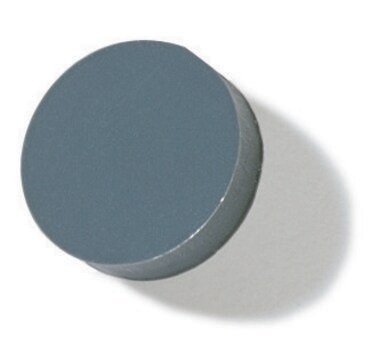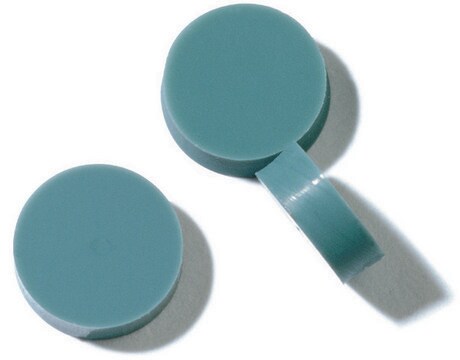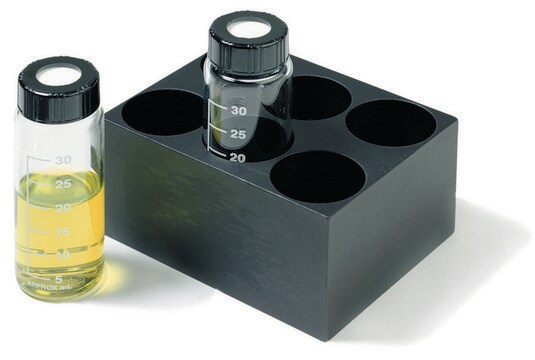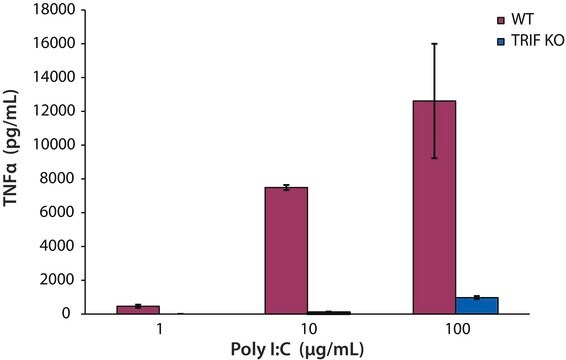22657
SS-174 PTFE-Faced Septa
diam. 12.5 mm ( 1/2 in.)
Sign Into View Organizational & Contract Pricing
All Photos(1)
About This Item
UNSPSC Code:
41115718
Recommended Products
material
off-white silicone body (123 mil thick)
yellow PTFE face (2 mil thick)
packaging
pkg of 100 ea
diam.
12.5 mm ( 1/2 in.)
Looking for similar products? Visit Product Comparison Guide
General description
PTFE-faced septa are suitable to overcome the degradation due to prolonged high temperatures which occurs in silicone rubber septa. The degradation results in baseline drift and additional peaks. It is generally fixed with the PTFE faced towards the column packing.
PTFE-faced septa are designed for applications where greater inertness is required. The off-white silicone rubber body (123 mil thick) provides plenty of support for the yellow PTFE face (2 mil thick). After the PTFE is ruptured during injection, some bleeding may occur. Because this bleed increases as more of the rubber is exposed, we recommend using a needle guide to reduce the size of the punctured area. For use with 200 °C to 300 °C inlet temperatures.
Choose from one of the most recent versions:
Certificates of Analysis (COA)
Lot/Batch Number
Sorry, we don't have COAs for this product available online at this time.
If you need assistance, please contact Customer Support.
Already Own This Product?
Find documentation for the products that you have recently purchased in the Document Library.
Beatriz Cancho et al.
Journal of chromatography. A, 943(1), 1-13 (2002-02-01)
A headspace solid-phase microextraction (HS-SPME) procedure followed by gas chromatography and electron capture detection (GC-ECD) has been developed for the determination of aldehydes in drinking water samples at microg/l concentrations. A previous derivatization with o-(2,3,4,5,6-pentafluorobenzyl)hydroxylamine hydrochloride (PFBHA) was performed due
Carmen López-Blanco et al.
Analytical and bioanalytical chemistry, 383(4), 557-561 (2005-09-01)
Water contamination due to the wide variety of pesticides used in agriculture practices is a global environmental pollution problem. Analytical methods with low quantification limits are necessary. The application of a new extraction technique, solvent drop microextraction (SDME), followed by
Ian A. Fowlis
Gas Chromatography, 62-62 (2008)
Our team of scientists has experience in all areas of research including Life Science, Material Science, Chemical Synthesis, Chromatography, Analytical and many others.
Contact Technical Service






